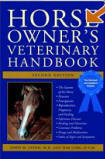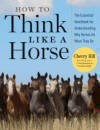|
Equine Kingdom Riding Academy
is no longer in operation. These more than 2,000 unique pages are provided for historical and educational reference. |
||
|
|
||
|
|
- Catching Your Horse -
Regardless of what you're going to do with your horse, you'll always have to catch it first - unless you board at a barn that keeps your horse inside all the time, or have someone else catch your horse for you. Essentially, at some point in time you're going to have to catch your horse. Many people, especially uneducated ones, take it for granted that the horse will walk right up to you and let itself be caught. They also assume that the horse will then walk quietly with them, turn, and stop when asked, and behave perfectly. Unfortunately , this is not true of many of our equine friends. It isn't always like this. Some horses are very hard to catch in a field, and some truly evasive ones are even difficult to catch in a stall. People get frustrated when their horses avoid being captured or pull when being led. Horses that kick or rear while being led, or that pull away or whirl and kick in the pasture are putting their owners in danger.
Hard To Catch Horse Most people that are looking online for a solution for catching their horse complain that their horses are hard to catch. A lot of times owners resort to bribing or tricking their horse into being caught. How familiar does it sound to you to use grain to catch your horse, catching another horse first and leading it up to the one that's difficult to catch, walking backwards up to a horse to catch it, following it around or chasing it around until you catch it? These are just a few of the tactics used by frustrated owners that don't have the time to devote to spending thirty minutes in the pasture each time they want to catch their horse. I must confess, I'm one of those people! A lot of people that own horses for pleasure don't have much time to ride, due to families and work. They want to spend the time they have RIDING their horse, not trying to catch it! That frustrates even the most easy-going human. This is a very common problem, albeit a very annoying one, and takes a lot of time and patience to overcome.
The best way to teach a horse to be caught is to get it to understand that being caught is not a bad thing. Don't give them a chance to associate being caught with something unpleasant. Make it pleasant for the horse to get caught. This doesn't always mean treats, although walking into the field, giving the horse a treat, and turning and walking away is a very effective way of creating interest. You want to create a positive expectation in your horse so that they look forward to the times you come to take them out of the field.
Also think about what happens after your horse leaves the field with you. If your horse enjoys the work it does outside of the pasture, that's going to be a much happier, easier horse to catch than one that doesn't like the time it spends under saddle. If the horse comes to you when you have a treat but runs away when they see a halter and lead rope, that isn't a good thing. You need to create a pattern - teach your horse that it's safe to approach you in the pasture, because nine times out of ten he will just get a treat and a scratch, and you will then turn and walk away. The tenth time when you DO halter her and bring her in, give her a bit of grain, and make the whole experience of grooming, tacking up, and riding as pleasant and positive as you possibly can. When you're done, take her back to the field and give her another treat before you turn her out. Chances are if you keep this up, you'll have a horse that you can't keep away from you!
If you're doing everything you can and your horse still doesn't want to be caught, check for physical problems - teeth, back, feet, bit, saddle, and bridle. Talk to your horse when you ride so that they will enjoy the experience. Make the work easy, praise the horse when they do the right thing, don't punish, and keep things interesting! If your horse is used to constant ring work, take him out on the trails once in a while. Hand-walk your horse down a trail, or hand-graze him for a while. Just sit and enjoy your horse's company. Spend some time giving your horse the grooming of his life. Making your horse's job fun can make a huge difference on your horse's attitude about being caught.
Take your time, be patient, and realize that some horses just take more than others. You should be able to go into a pasture and catch your horse without having to follow him around for an hour until he gets bored enough to stand in one place - although that works too. I know a horse, one that I use for lessons, that used to be horrible to catch - it would take trapping her in a corner, or following her around for thirty minutes before she'd finally stand still to be caught. Every time I went out, though, I followed her until she stopped, and it took less and less time each time I did that - until it took only thirty seconds, then ten seconds, then two steps to catch her. She's very easy to catch now.
Rearing When Being Led A horse that rears while being led is extremely dangerous. Sometimes horses will pick up on this habit if they have excessive energy - if your horse is rearing under halter and lead, check your feeding pattern, and his exercise habits. Does he get turned out regularly, for a sufficient amount of time? Is he getting fed high-energy food such as alfalfa and high-protein grain? Horses of any breed will get agitated if they're confined for too long, or if they aren't exercised much and are fed as if they were being worked regularly. Rearing while being led is a habit that you must break as quickly as possible if you want to keep your horse.
Never handle a horse that rears without your safety helmet on - it's dangerous!! Always ensure your own safety first. If you know when your horse is going to rear, try to get him to shift his weight down and forward BEFORE he rears - change his mind. If you are very attentive, you'll be able to catch the brief pause before your horse starts to rear. Snap the lead rope and take him forward AND sideways. Move him away from you, or around in a circle. This has the following effects; it shifts the weight of the horse's forehand to one side, and he has to put his front feet down to balance his weight. it also puts his attention on you, because you are telling him to do something. It's also a distraction. A horse that is taken sharply sideways and forward will usually quickly forget about that he was going to rear. It's pretty easy to break a rearing habit by taking a horse sideways and forward when they think about going up.
Regardless of what you're training or retraining your horse to do, keep in mind that you must always make it easy and good for the horse to do what you want it to do, and always make it difficult and unpleasant for the horse to do what you DON'T want him to do. Think carefully about what you'll do, why, and what the effect will probably be. Standing still, yelling, and jerking the lead will not help - in fact it usually makes matters worse, because the horse will stop completely, pull back and up, and then probably rear. It also doesn't work to use a bit to control the rearing, because pulling on the bit will cause pain in the horse's mouth, usually causing them to rear even higher. If a horse rears very high, there's a good chance he will flip over on his back, possibly sustaining even more injury, both to himself and you.
|
||||||||




